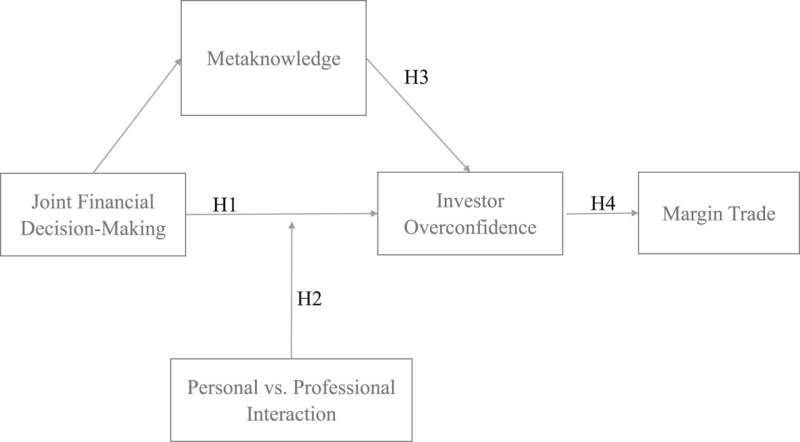This article has been reviewed according to Science X's editorial process and policies. Editors have highlighted the following attributes while ensuring the content's credibility:
fact-checked
peer-reviewed publication
trusted source
proofread
New research suggests that investors who make decisions with others are half as likely to bet on falling stock prices

Consulting with others on money matters reduces financial overconfidence and improves the quality of investment decisions a newly published paper from University of Sussex researchers, has found. The counter-intuitive effect is most pronounced when non-experts, including family and friends, are consulted.
The paper, "The One-Man Show: The Effect of Joint Decision-Making on Investor Overconfidence," published in the Journal of Consumer Research, is authored by Dr. Dominik Piehlmaier from the University of Sussex Business School. His research forensically examines the impact of shared decision making on investor overconfidence using data from over 2,000 investors, 6,394 consumers and 657 experimental participants.
The new study found that private investors who make decisions without the input of others are more than twice as likely to bet on falling stock prices, showing that involving others in the financial decision-making process can increase the sound judgment of private investors.
The research underlines how involving others can reduce unreasonably high confidence in a person's financial knowledge. What's more, this effect was particularly pronounced when consulting people including family and friends, and less observable when working with a professional financial advisor.
Dr. Dominik Piehlmaier, lecturer in Marketing and an expert in consumer behavior, in the University of Sussex Business School, said,
"Everyday millions of financial decisions are made by private investors, many of them without the input of others. This research shows that lone financial decision-making has real consequences as it increases overconfidence and the likelihood of engaging in risky financial decisions. Those who consult others on money matters in their financial decisions are significantly less overconfident."
"In essence, this is the first paper to empirically show and experimentally verify that in finance we profit from involving others in our decisions because they share their doubts and lack of knowledge."
The research may also have much wider benefits to the wider financial community, by effectively lowering the risk of lone decision making, with Piehlmaier advocating change to the way financial decisions are made.
Dr. Piehlmaier continued, "Failing to judge one's investment knowledge has real-world consequences, as overconfident lone investors are much more likely to bet on stock prices using their portfolio or savings as collateral (that is, what's known as margin trading) compared to their jointly deciding peers."
"Decision-makers in finance and politics should actively encourage joint financial decision-making, especially within the household as it represents an inexpensive and readily available intervention to improve the quality of financial decisions made by private investors."
More information: Dominik M Piehlmaier et al, The One-Man Show: The Effect of Joint Decision-Making on Investor Overconfidence, Journal of Consumer Research (2022). DOI: 10.1093/jcr/ucac054
Journal information: Journal of Consumer Research
Provided by University of Sussex



















